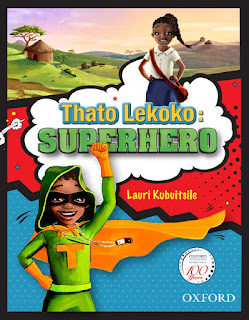(Today is World AIDS Day and I thought this might be appropriate)
Lorato came over
today with her new baby, Stanley. I’ve hardly seen her since her wedding. We
used to work together and we became quite close. She’s younger than me and I
often thought of her as a daughter. But as people do, we’ve drifted apart. She’s
now a chicken farmer up north and I’m a writer and our busy lives have dwindled
down to SMSs on holidays.
She was in
Mahalapye with her new baby, Stanley. Such a middle-aged man sort of name for a
tiny baby. I supposed it matched his calm demeanour, fat stomach, and the contemplative
look he gave me.
“Is he okay then?”
I ask Lorato.
“So far.”
Some years ago
Lorato dated a policeman. She loved him at first, but then problems arose. She
found he’d been cheating on her. Worst still, she found that the woman he’d
been cheating on her with was HIV positive. She confronted him, he denied it.
She went for a test. She was positive.
The evening she
told me, I felt like I’d been hit with a brick. I wanted to find a way to make
this man pay for what he’d done to my friend. Her brother had died from AIDS
four years previously, just before the government made ARVs free to all who
needed them. She knew about AIDS. She’d been careful. This man did this to her.
But time passed
and she met a new man and life went on. She got married. They wanted children and
now here was Stanley, the wise little man-baby.
Lorato has been
lucky so far and has avoided ARVs. She
changed how she ate, eating more vegetables and fruits, and drinking lots of
water. “The biggest thing is I avoid stress,” she said. “I know stress, it will
kill me.”
She told me how
during the preparations for her wedding, a strife ridden affair in the best
cases, but with her mother, who I know too well, it was a nightmare. Her CD4
count had gone down to 247. The ARV programme in Botswana advises HIV positive
people to start taking ARVs when their CD4 count goes below 250. But Lorato
refused. She knew it was the stress of the wedding. She just needed to get
through it and she’d be fine. And she was right. Her CD4 count is at 412 now,
even after giving birth. She’ll take ARVs when she needs them, but wants to put
it off for as long as possible.
She took ARVs
during pregnancy, though. Botswana’s
Prevention of Mother to Child Transmission (PMTCT) programme is one of the most
successful in the world. 95% of HIV positive mothers in the country are in the
programme. Less than 3% of these mothers’ babies are born with HIV. She started
taking the ARVs during the 29th week of pregnancy, three pills, two
times per day. Once labour started she took the pills every three hours until Stanley was born.
“He was tested at
six weeks, he’s okay,” she assures me. I look down at Stanley who seems to want
to tell me something important, wagging his fists at me. “One more test at a
year and half and we’ll know he’s safe and clear.”
He looks healthy
and Lorato says he’s never been sick. The nurses advised her that it’s okay to
breastfeed, but she’s taking no chances. She’s bottle feeding. “They told me
it’s okay, but I don’t think so. Anything could go wrong.”
I hold Stanley who
nods off reluctantly. “You know this is not all bad,” Lorato says. “There’s a
good side to this HIV. I’m careful now; I pay attention to things… for him and
for me. I don’t let stress get me down any more. I manage it. I have to.”
There is so much
doom and gloom around HIV. The scourge.
There was a time in the 1990’s when it felt like the entire country was in
mourning. Every weekend was for funerals. If you didn’t see someone for awhile,
you didn’t ask. If a woman was pregnant and then never spoke about a baby, you
didn’t either. During that time was when Lorato’s brother died. Sick and sick
and then dead, at 22.
I look at Stanley and at Lorato and
think about what a difference just a few years has made in Botswana and
I’m very thankful.
(This essay was first published in New Internationalist)
